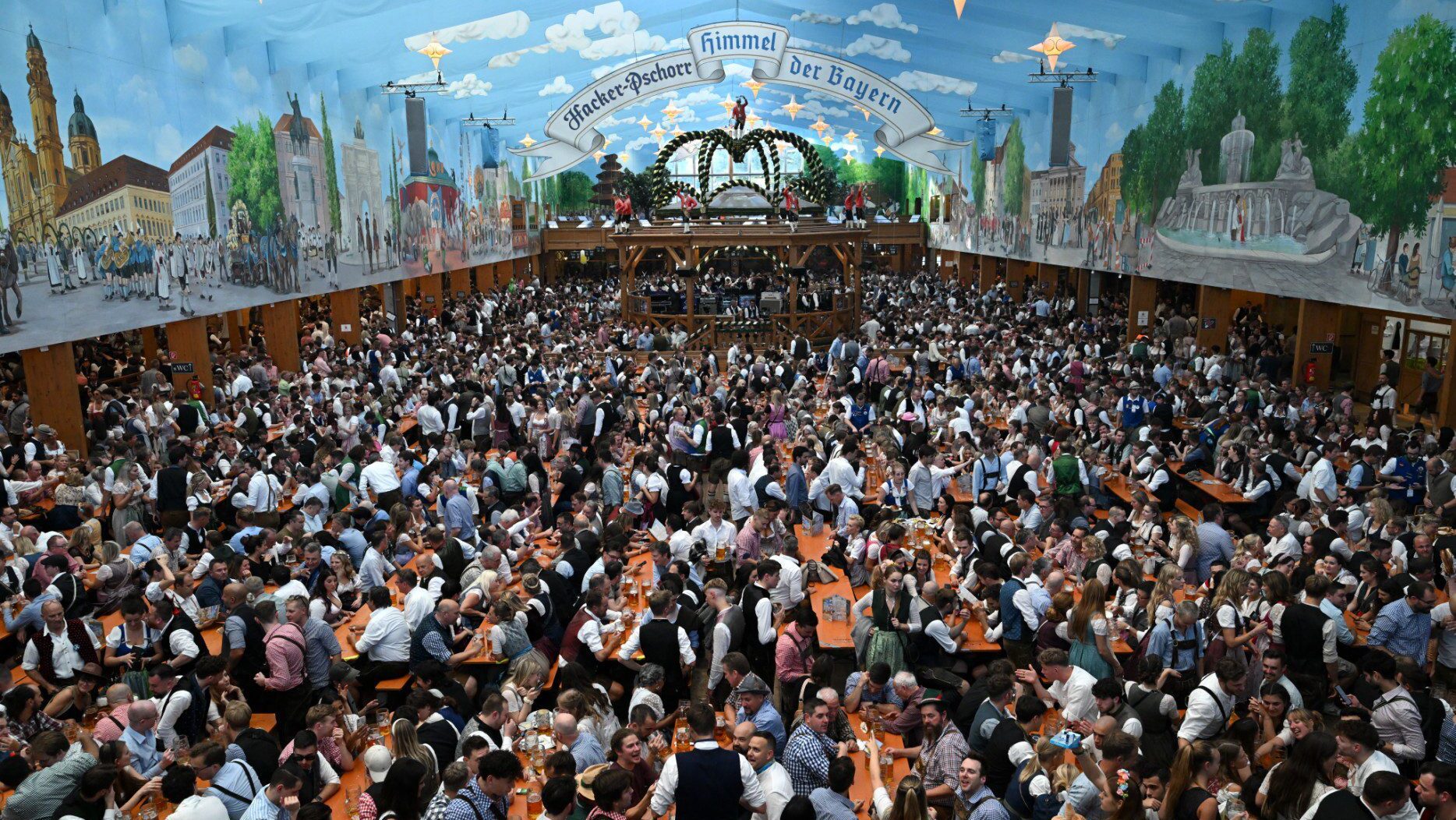
Visitors sit in a festival tent of the Oktoberfest beer festival in Munich, southern Germany, on September 29, 2023.
Photo: Christof STACHE / AFP
Organizers of this year’s Oktoberfest in Munich, the world’s largest beer festival which draws millions of visitors from Germany and abroad every year, plan to ban the 1999 dance hit “L’amour toujours” by DJ Gigi D’Agostino, which has found a renaissance and surged to the top of the country’s iTunes chart.
The decision follows an incident on the German island of Sylt, near the Danish border, where German youths appear to be “holding glasses of Aperol, rosé, and champagne” singing “Germany for the Germans, foreigners out” to the tune of the song.
Sylt is a popular destination among the wealthy, so the anti-immigration chants by a demographic dubbed “Prosecco Nazis” by Green Party politician Jürgen Trittin goes against the (disproven) narrative that right-wing sympathizers belong to a lower-income, less-educated strait of society.
This is not the first time the Italian DJ’s song has been in trouble. Last fall, men at a party in Mecklenburg-Western Pomerania were recorded singing the offending lyrics to the same tune. At that time as well, the video made the rounds on the internet, attracting ridicule and condemnation—as well as imitations.
Various German officials were quick to condemn the behavior of the young party-goers. Chancellor Olaf Scholz called the slogans “disgusting” and “unacceptable.”
Solche Parolen sind eklig. Sie sind nicht akzeptabel. #Sylt
— Bundeskanzler Olaf Scholz (@Bundeskanzler) May 24, 2024
Germany’s activist interior minister Nancy Faeser did not mince words either, even drawing a comparison with Nazis: “Anyone who shouts such Nazi slogans is a disgrace to Germany,” she said.
In diesen Zeiten muss jedes Video auf seine Authentizität geprüft werden. Aber klar ist: Was wir dort sehen, ist widerwärtig und menschenverachtend. Wer solche Nazi-Parolen grölt, ist eine Schande für Deutschland.https://t.co/pRPszZXxjz
— Nancy Faeser (@NancyFaeser) May 24, 2024
Yet, instead of taking a hard look at the reason for such behavior—the nation’s failed immigration and integration policies being an obvious culprit—the road chosen by authorities is one of suppression.
It is to that end that Oktoberfest organizer and Munich’s Head of Department of Labor and Economic Development Clemens Baumgärtner (CSU) is implementing a zero-tolerance policy, banning the song from the festival.
“Of course, this kind of thing has no place at Oktoberfest,” Baumgärtner told German media.
Baumgärtner, who also banned those unvaccinated against COVID-19 from entering the premises of last year’s Oktoberfest, wants to go one step further however.
Anything that glorifies violence, is sexist, or racist could be banned, he added, promising that a special request would be issued to all showmen and exhibitors at the festival. “If there’s any grumbling, I want to know about it immediately. We will do everything we can to ensure that this kind of thing doesn’t get a stage.”
Regardless, any such bans will only be stopgap solutions, as they do not address the core problem: the German people’s growing sense of alienation and disenfranchisement.
An online comment, written under the screen name Julian Schneider, said,
It is by no means about foreigners. It is about the deliberate, uncontrolled mass migration. It is about the fact that the German population is a victim without being allowed to defend themselves. … Anyone who says something is a Nazi and is criminalized. It is an opportunity to express one’s displeasure with the totalitarian socialist structures in which we have to live.
There is no doubt that European youths, including Germans, are shifting their sympathies to the Right—a documented fact that the establishment may find even more unpalatable than its expression in the chanted or sung slogans.
In addition, crackdowns from authorities will only serve to make the song (especially sung using the new lyrics) that much more risqué, and thus more attractive, to youths looking for ways to rebel against the reigning orthodoxy.
